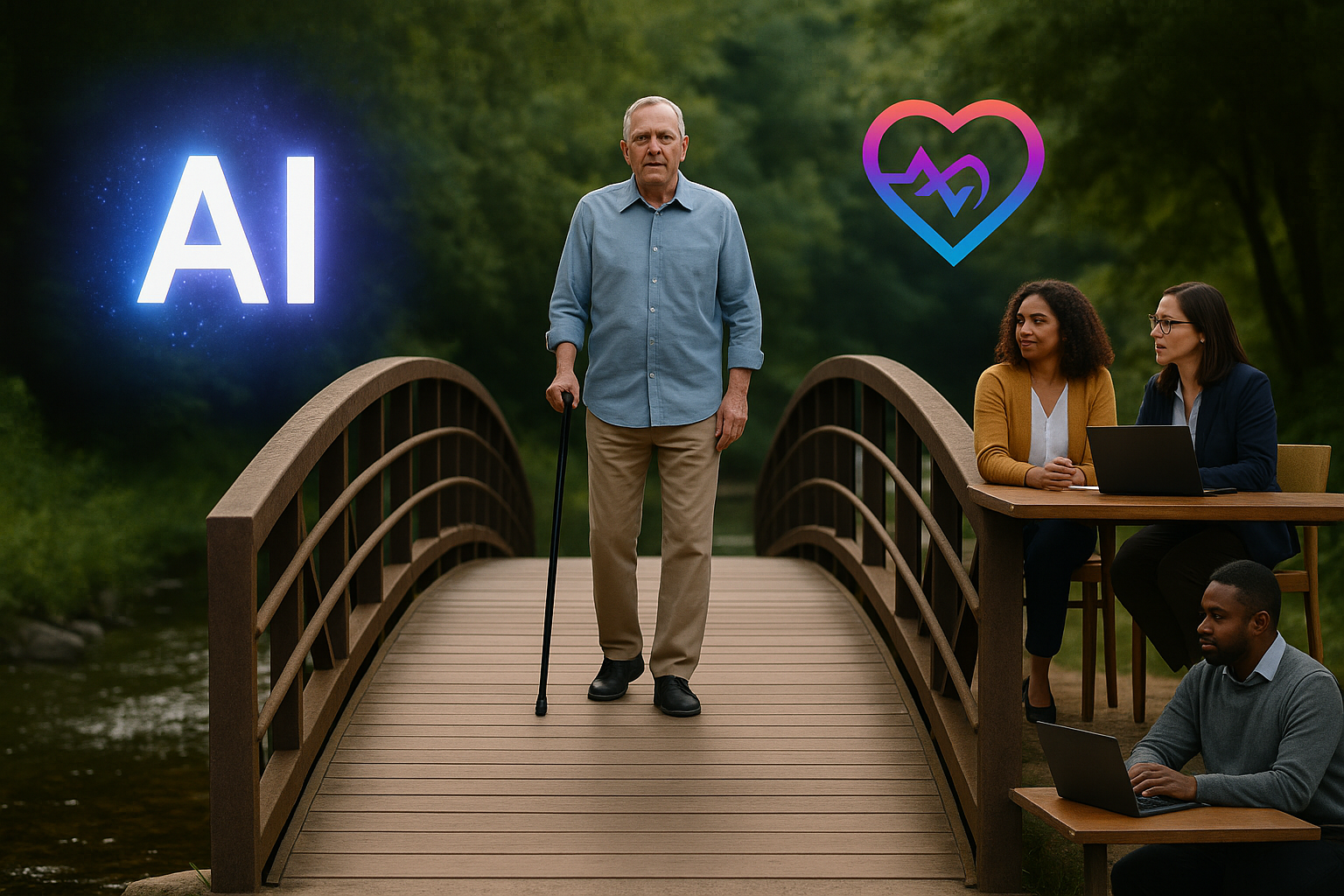How Advocara Channels our Nonprofit Partners' Knowledge

A nonprofit leader recently told us:
We used to get 15 calls a week. Now it's eight. But we know our members needs have actually increased. We're pretty sure people are just asking ChatGPT first.
This is the AI Engagement Drain. People do get fast and helpful answers from generic AI, and that then becomes a habit. But you may not even know that organizations with real experts and a passionate commitment to help also exist if you over-rely. We find a mix of both is helpful: fast answers and guidance, but with links, recommendations and monitoring to clarify when a human is better.
Don't get us wrong,Public AI tools are now remarkable: they explain basic terms and at least apply conventional wisdom to your particular situation. Instantly. But health insurance, disability, and billing issues are often complex, state regulated and unconventional. And there are human elements to every medical situation too.
The Problem: Three Gaps in Generic AI
Sometimes you need nuance, empathy, and experience too. Here are some specific issues:
No Curation
Trained on everything from medical research to Reddit threads, AI distills common knowledge and generic advice. It can't distinguish decades of nonprofit institutional knowledge from mis-stated opinions or unfounded online web site claims.
No Relationship
AI interactions occur in an isolated AI world. There's no pathway back to organizations that specialize in your exact situation, so you can get stuck in a cycle of incomplete AI summaries that are hard to verify.
No Escalation
These tools don't know when you need more than information – sometimes you need help. Resources exist for advocacy, empathy, and crisis support, and it should be up to you what path to take.
To move beyond these AI basics, we add nuance, ensure privacy and perhpas most of all - connect people to expert content and organizations.
The Reality: Most Questions Don't Need a Phone Call
An advocate at one of our partner nonprofits told us:
"I use the tool myself now. This is like, wow, to give me the start and then I can add any additional info is amazing. Great."
She now supports more people, faster, including expert information from her own organization that could be missed.
Here's why her use of AI provides the best of both worlds: 80% of questions can be answered well with good, curated information. "What does this code mean?" "How do I get insurance to pay?" "Do any grants exist to help me?" These don't require a specialist's time; they require validated knowledge, made relevant and accessible.
The other 20% are complex cases, crisis situations, or needing deeper experience, and that's where human expertise is valuable.
The challenge: Generic AI is built ("trained") to answer succinctly and confidently, not to tell the difference. We think of this as a lack of AI Humility, not deferring to a human or providing pathways to get you there.
How Advocara Works: Curated Content + Transparent Sources
When you ask Advocara a question, you often get answers drawn from content our nonprofit partners refined over years – or even decades. Their guides, articles, and institutional knowledge.
And we ensure you see this. We use expert information and also link to it. Source links are embedded in our claims and references so you can check who is behind the information, clarify details and be confident.
Why Transparency Matters
Trust. It's hard (and unwise) to trust a black box. By linking to sources, you know what you're getting and can make your own choice of when to read a longer article or not, when to verify a key fact.
Connection. Using our services will build your awareness: "This organization exists. They know my situation. They're here if I need them." Even if you never pick up the phone or write an email, you become at least mentally connected with dedicated helpers.
Smart Referrals. Our AI detects when you need human support – crisis language, complex cases, advocacy requests – and connects you directly to specialists with your chat context summarized and included (if you give permission).
Our AI actually uses AI to decide when not to use AI.
We check for referrals first and constantly.
This makes expert information from our partners available 24/7 while keeping these organizations themselves visible – not hidden behind overly-confident AI answers.
Our Design Philosophy
AI should make nonprofit expertise accessible, not invisible.
When you get help, you should know where it came from. You should see an expert organization's name, access links to their resources, and know they're available when you need more.
We don't cover every medical condition. Not yet. Our biggest effort is for wheelchair users and spinal cord injury sufferers, and we plan to address family caregiver needs soon. Stay tuned as our offerings expand and roll out.
Our goal isn't to automate empathy or know every answer. It's to provide what we do know, and direct people to empathy when it makes sense.